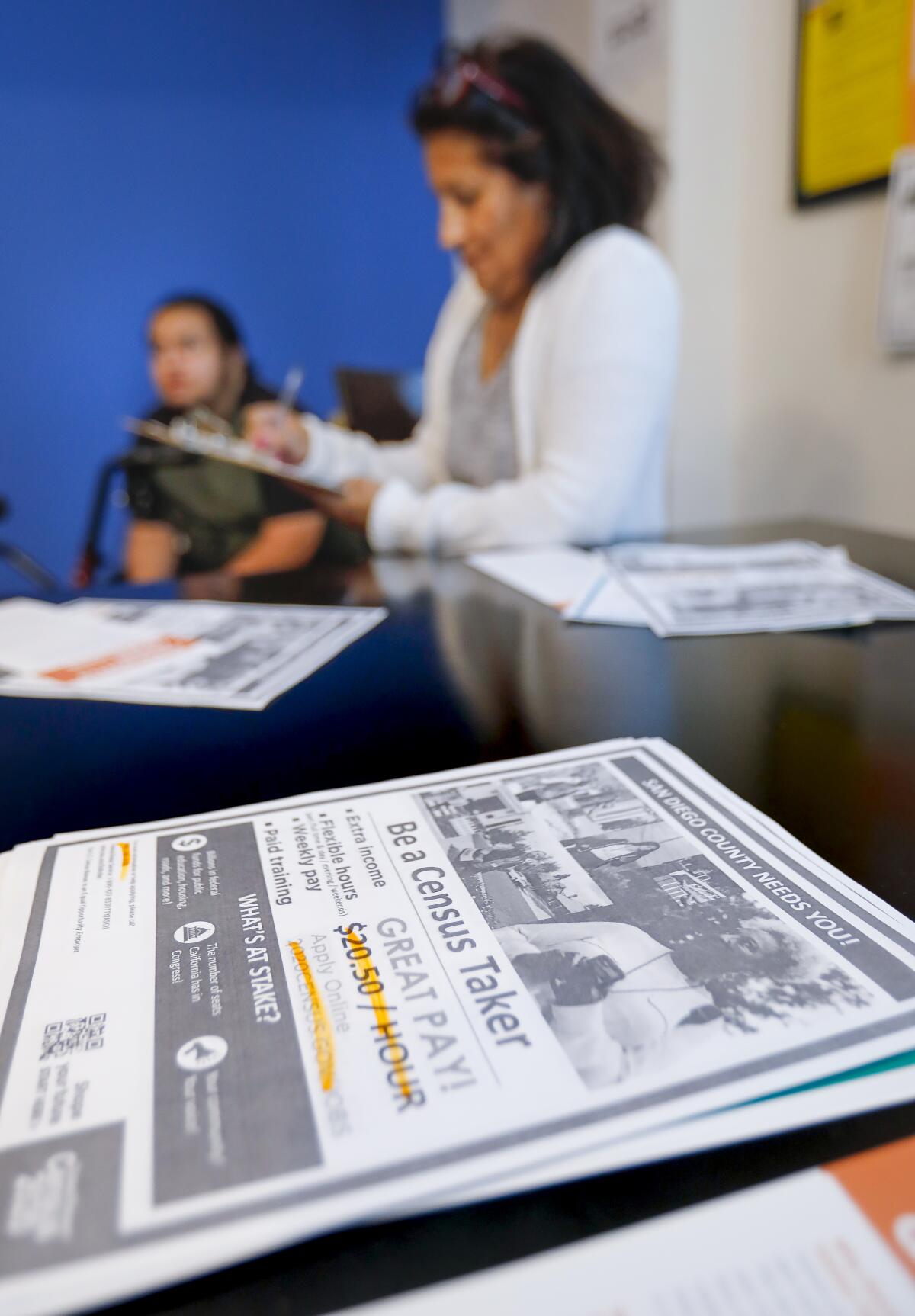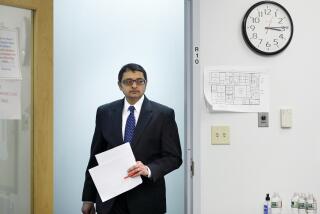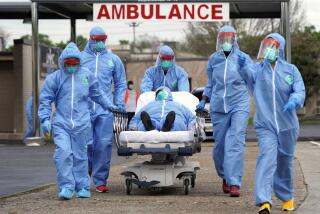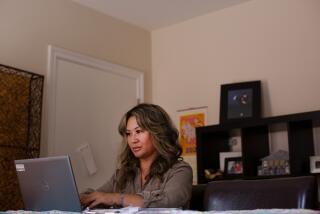Don’t want a census taker at your door during the coronavirus outbreak? Fill it out online

- Share via
WASHINGTON — The coronavirus outbreak is threatening to complicate the nation’s massive, once-a-decade population count, but it’s also giving momentum to the Census Bureau’s 2020 push to encourage people to respond by phone, mail or — for the first time — online.
Don’t want a stranger knocking on your door after spending the day knocking on other people’s doors? Then fill it out online, the government says.
Such “self-responding” as early as possible means “you don’t have to come into contact or meet a census taker,” when they are deployed in May, bureau spokesman Michael Cook said.
Beginning Thursday, about 80% of the population will get an invitation in the mail instructing them to fill out the census online — the first time people have had the ability to use the internet to respond. The other 20% will get an option to fill it out either online or by regular mail. (Everyone also gets the option of doing it by phone.)
“The good news for the census is they are counting on a lot of people to fill out their census forms online,” said William Frey, a senior fellow at the Brookings Institution’s Metropolitan Policy Program. “They picked a good year for it.”
Before May, very few people will have someone knock on their door. But that changes when the bureau begins following up with those who don’t voluntarily respond.
The bureau expects to hire 500,000 census takers between May and July and has recruited more than 2.6 million applicants so far, officials said.
Because of the new health threat, training for recruits includes advice about hand washing, using sanitizer and other strategies recommended by health officials, Cook said.
“We will train people who are coming into contact with others how to be mindful of their safety and that of others,” Cook said. He said the bureau is not currently concerned that would-be census takers will drop out because of the coronavirus.
But others are concerned that could become an issue for the bureau.
“If you are in an environment where public health professionals are telling you to be safe [and keep your distance], it’s just another challenge to recruiting people to do that good, important work,” said Sen. Tina Smith (D-Minn.), who recently sent a letter with other U.S. senators asking the Census Bureau how it plans to conduct an accurate 2020 census during the outbreak and what it is doing to protect census workers.
Census results are chiefly used to decide how many representatives each state gets in Congress, as ordered by the Constitution.
But they affect much more. State governments use the data to redraw legislative districts, cities to determine where to build schools and police stations, which roads get repaired first, even whether to put in a crosswalk at an intersection. Businesses use the data to determine where to grow, and nonprofits use the figures to decide where they can be of the most help.
April 1 is Census Day. What do you need to know about filling out the 2020 census? What information does the government want, and what ever happened to that citizenship question?
An undercount would have a decade of repercussions for communities.
Smith is working with the agency to schedule a briefing for Congress about how the outbreak might affect its work as well as the ability to get an accurate count.
Although the census is promoting online responses, “we also know there are a lot of people for whom that just is not going to work,” Smith said. Many of the same people who don’t have home internet access are among the most difficult to count, she said.
And the coronavirus outbreak may continue to get worse during key periods of the count.
“We don’t know where we are going to be in terms of our ability to test or where in the arc of this virus we’re going to be” when it is time for census takers to visit homes, Smith said.
Smith said she wants specific details about how the census plans to retain enough census takers to reach those who don’t respond online, by phone or by mail.
Hoping to curtail the worst of the coronavirus outbreak, which the World Health Organization declared a pandemic Wednesday, public schools and universities have closed. Businesses are urging employees to work from home. “Wheel of Fortune” has stopped taping in front of a live studio audience.
In some areas, such as college campuses that have closed down or neighborhoods that have been quarantined, there might be a delay or disruption to the census, but the bureau has a reserve budget to allow it to move offices, hire extra workers or send extra mailings in case of an emergency, Cook said. No delays or changes have been made yet, though the bureau has created a task force to decide when it might be needed.
“We’ll adapt to make sure we’re getting the same population counted another way,” Cook said.
He emphasized that college students should report living at their college address, even if the school has sent them home.
A hundred years ago, the census director blamed the 1918 Spanish flu pandemic, along with World War I and other things, for a five-month delay in results of the 1920 census. But officials don’t intend to have a similar problem.
“We will make sure that we follow our constitutional obligation to deliver the 2020 census count by Dec. 31,” Cook said. “Regardless of the situation, the work continues and we fulfill our mandate.”
More to Read
Get the L.A. Times Politics newsletter
Deeply reported insights into legislation, politics and policy from Sacramento, Washington and beyond. In your inbox twice per week.
You may occasionally receive promotional content from the Los Angeles Times.










